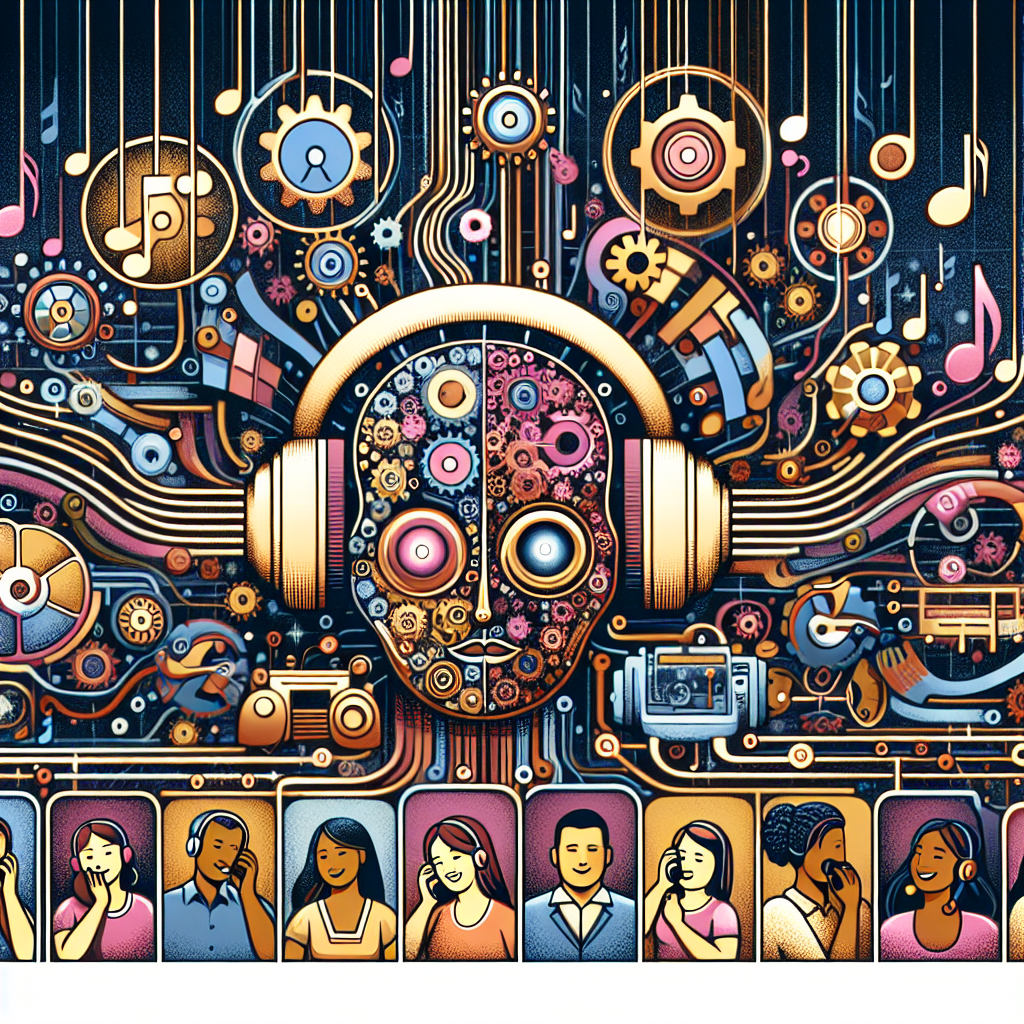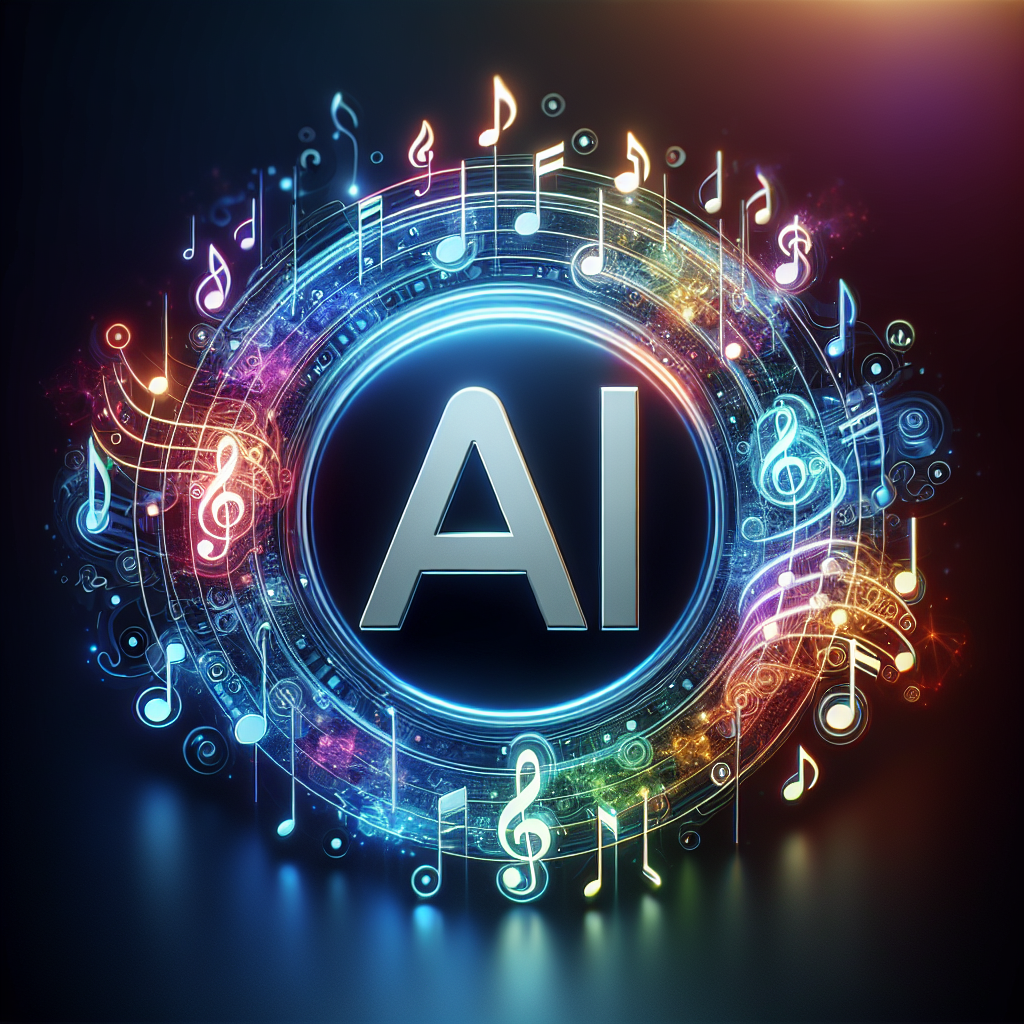
In a world fueled by emerging technologies, Artificial Intelligence is carving a niche in many business sectors, customer service being one of the key areas. AI-powered customer service tools, ranging from voice-activated personal assistants to chatbots, have made their way into this sphere, personalizing consumer interactions in the process.

Among the myriad of its applications, AI technology now offers an innovative solution to an age-old annoyance - the hold music you hear when on a call centre line. This solution not only aims at making the waiting time more bearable but also curates a personalized listening experience for each customer. You might have encountered the monotonous elevator-style hold music or, worse, the eerily silent void. Recognising this as an area ripe for improvement, companies are using AI to provide a better, tailored audio experience while customers are on hold.
AI-driven hold music systems identify individual caller's preferences and tastes. This information is derived from various sources, which can include prior interactions with the service, browsing patterns, or through direct questions posed by the AI. As a result, you might be hearing classical music, pop hits, podcasts, or even news updates - all based on your personal preference - instead of the dreaded, repetitive hold music.
The advantage of this personalised wait experience goes beyond simply preventing customer annoyance. It enhances brand image, fosters customer loyalty, and also presents a new channel for businesses to communicate with their audience. Understanding a user's preferences can offer valuable insights into what kind of promotional content might appeal to them, which can then be discreetly integrated into the personalised hold experience.
With the advent of these AI-powered systems, it comes as no surprise that customer service is evolving into a more intuitive, user-centred field, turning every customer interaction - even being on hold - into a personalised experience. Leveraging AI in customer service is clearly more than just a trend; it's a game-changer.
In the new dawn of technology, even our hold music is getting smarter. Using AI-powered selection, businesses are now able to personalize the wait music experience to the preference of every unique caller. This new wave of customization focuses on enhancing the total customer experience, and here's how it works.
The approach relies heavily on big data analysis. AI gathers a range of information such as previous caller history, time of the call, geographical location, and even inferred demographic information. By aggregating and learning from this data, AI can make strikingly accurate predictions about which hold music will cater to the listener's preferences.
AI algorithms sifts through vast libraries of tunes, selecting the ones that best align with the user’s profile. It could shift between genres, from popular jazz to current pop charts, depending on what it perceives the user will enjoy. Interestingly, AI systems go beyond basic genre and mood classification – it has demonstrated the capability to match music to occasions, having learned that particular contexts call for specific types of music. For instance, holiday-centric music could be selected for callers during festive seasons.
Furthermore, this AI-led personalization extends to the pace and tone of the wait music. Employing sentiment analysis, AI can interpret the emotional tone of the caller and adjust the music accordingly. If the AI detects a stressed caller, it might opt for more soothing, relaxing music, aiming to calm before direct interaction.
As trends shift towards hyper-personalization of customer experience, AI-powered hold music seems to provide a touch of comfort during wait times. It successfully leverages user data and complex algorithms to create an immersive and tailored auditory environment, transforming the often monotonous hold experience into a delightful private concert.
With advancements in technology, user experience has taken centre stage, and even the hold music you hear when on call with businesses is no exception. Enter AI-powered music selection, a tool that's helping to personalize the waiting experience for callers.

Perhaps your business has been grappling with the challenge of long hold times, resulting in impatient customers who can't wait to end their calls. Surprisingly, personalized hold music, made possible by AI technology, can turn these otherwise monotonous waiting times to delightful music experiences.
Firstly, reducing perceived wait times is a significant benefit of personalized hold music. AI uses data on the caller's preferences and listening habits to curate a playlist that suits their taste. As customers enjoy the music, they're less conscious of the wait duration. A study showed that customers perceived shorter wait times when they listened to music they liked.
Secondly, these AI-powered selections improve overall customer satisfaction. People appreciate when businesses show that they understand and consider their tastes, leading to positive customer experiences. This positive reception can be measured by increased satisfaction ratings and positive feedback.
Finally, let's not forget the business outcomes. Happier customers will likely remain loyal and could make positive recommendations to potential customers. Increased customer retention and potential growth in customer base translate to better business performance. Leveraging AI for personalized music selection could be your business's game-changing strategy.
In conclusion, using AI to power your hold music selection offers significant benefits. It reduces the perceived wait time, boosts customer satisfaction, and contributes to better business outcomes. If you haven't already, it's high time to consider this innovative Personalizing Wait Experience tool.
The intricate technological framework of AI-powered hold music selection systems revolves around the integration of Machine Learning (ML) and music recommendation algorithms. This allows the system to understand user preferences over time and enhance their on-hold experience through personalized music playlists.
At the heart of these systems lies the Music Information Retrieval (MIR) technology, a branch of ML that deals with extracting information and understanding patterns in music. This technology employs audio mining and acoustic signal processing to determine the acoustic features of different types of music. Moreover, MIR incorporates Collaborative Filtering recommendation algorithms to suggest songs that were liked by other users with similar music tastes.
In addition to MIR, Natural Language Processing (NLP) techniques are also utilized in order to understand and interpret the verbal or written customer feedback. This enables the AI model to improve its song recommendations and provide a more personalized on-hold experience for each user.
For the deployment of these AI models, cloud-based platforms like Amazon Sagemaker or Google Cloud AI platform are usually employed. These platforms provide the necessary computational resources and tools, making the whole process more efficient and scalable. Moreover, their serverless architecture allows hassle-free, automated updates to the model as it continues learning and improving its performance over time.
Lastly, to ensure seamless content delivery, Content Delivery Networks (CDNs) are used. They ensure that the personalized hold music is smoothly and swiftly delivered to the end user, reducing latency and enhancing the overall on-hold experience.
Precisely, an AI-powered hold music selection system utilizes a diverse range of technologies to truly personalize the user's wait experience. By understanding the user's music preference, gathering feedback, and continuously learning and improving, it revolutionizes the on-hold experience.
In the pursuit of improved customer service, businesses are increasingly turning to AI for ingenious solutions. Recent advances in the field suggest that even the trivial moments of holding on the phone, usually dominated by the monotonous hold music, can be tailored to provide a more engaging experience for customers. With AI-powered hold music, businesses are able to personalize music to cater to customer's preferences and mood, while indirectly impacting business metrics positively.

One prominent case study that takes center stage is Amadeus, a global travel technology company. Integrating AI in its music on hold system, Amadeus witnessed improved customer retention rate, while the waiting time complaints significantly subsided. The system, developed using proprietary artificial intelligence, analyses customer data, their past interactions, current mood and preferences to select the most suitable songs.
Another real-world example where AI-powered hold music has been successfully implemented is Alaska AI Airlines. The carrier utilized AI-based systems to proactively select genre-specific music influenced by the demographics, travel history, and even the weather at the customer's location. A testament to the efficiency of this method is the fact that negativities associated with call waiting reduced while customer satisfaction substantially increased.
In both examples, this personalized AI experience manifested in better customer engagement, improved satisfaction ratings, and notable shifts in customer-centric business metrics. Personalization and customer-specific targeting by AI are proving to be vital for businesses to stand out in today's oversaturated market. This innovative technology shifts the standard monotonous hold experience into something uniquely tailored to the customer, thereby reinforcing a more positive brand perception.
These case studies fortify the notion that personalized AI strategies, even as simple as personalized hold music, can cultivate a memorable and enjoyable customer experience. Furthermore, their effective implementation can considerably enhance various business metrics and reaffirm a company's commitment to innovative customer service.
The integration of AI in the customer service industry is creating newer perspectives for customer interaction, especially in the music-on-hold aspect better known as "AI-powered hold music selection". This modern technology is revolutionizing the once monotonous experience of waiting on calls. It uses a personalized approach to music selection, courtesy of advanced learning algorithms, in the process transforming the caller's experience.
Looking towards the future, continued advancements in deep learning technology will further enhance AI's ability to understand callers' music preferences. Today's AI can already use data related to callers' previous interactions, general demographic or even time of day to personalize the hold music. In the future, we can expect AI to become so advanced that it could predict individual customers' moods and music preferences based purely on nuances in speech and tone.
Real-time machine learning is also an emergent technology that promises incredible advancements in this field. With such a technology, AI can learn and make music selections during the call, adjusting its choices as per the caller's responses. Thus, through real-time machine learning, customer service can become an instantaneously adaptive process.
The future of AI in customer service also holds promise for seamless integration with various music streaming platforms. Using API integration, AI can get access to a host of songs and playlists, enabling callers to select music from a platform of their choice, or have the AI make selections based on the favourite genres and artists from the caller's streaming history.
While these trends promise a radical transformation, the ethical considerations—privacy concerns, data storage and usage—will continue to shape AI adoption in the future. Therefore, the future of AI in customer service will likely strike a balance between personalized experiences and respect for user privacy.
Start your free trial for My AI Front Desk today, it takes minutes to setup!








